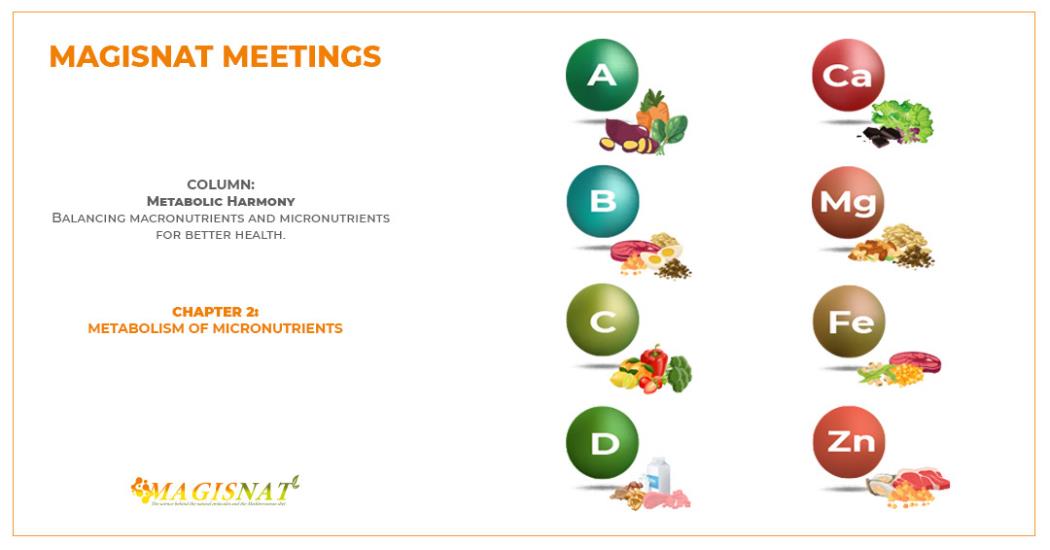( MENAFN - VS Media) In the second chapter of the third column, the MAGISNAT scientific team embarks on a detailed exploration of the metabolism of micronutrients, specifically focusing on vitamins and minerals. Micronutrients are necessary in many physiological processes, acting as cofactors, antioxidants, and structural components required for cellular function and overall vitality. As the team gathers for their weekly meeting, their attention is directed towards unraveling the intricate processes that govern the metabolism of these essential nutrients and elucidating their profound implications for human health and well-being.
Micronutrients, such as vitamins and minerals, are essential components of the human diet, facilitating a variety of biochemical reactions required for cellular metabolism, growth, and repair. Vitamins are organic components that govern metabolic pathways, enzyme activity, and immunological responses, whereas minerals are inorganic elements that help in bone formation, nerve transmission, and fluid balance. Micronutrient metabolism includes absorption, transport, storage, and excretion, all of which are strictly regulated to maintain homeostasis and optimal physiological performance.

Once absorbed, micronutrients go through a series of metabolic changes within cells, including activation, conversion, and utilization, where they exert biological effects. Excess micronutrients are frequently retained in specialized tissues or eliminated, to avoid toxic.
















